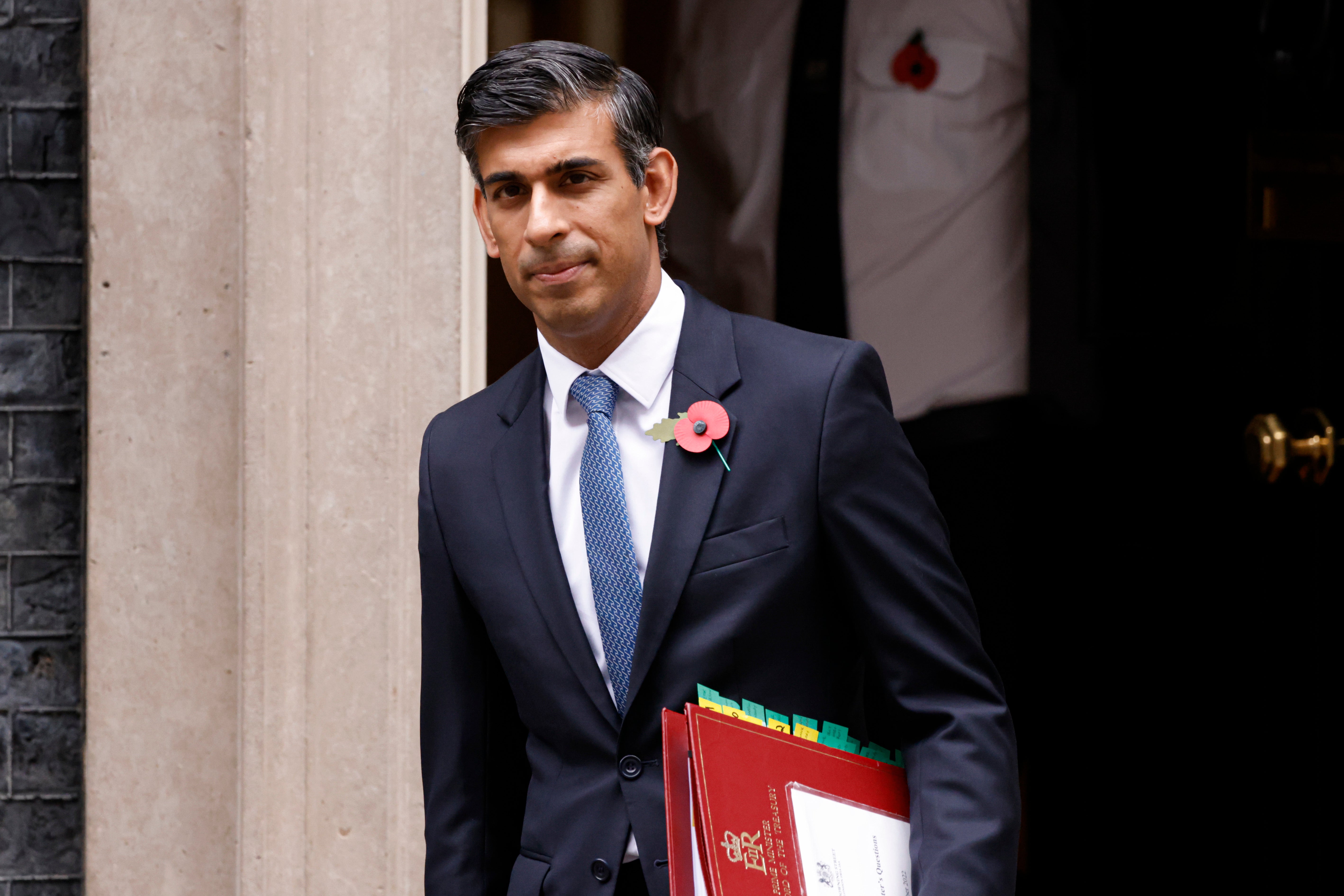Rishi Sunak has shredded the pledges he made in his failed leadership campaign
Editorial: Between them, Hunt and Sunak are now set on reversing both of the agendas presented to Tory MPs and members over the summer

It’s one thing for a prime minister to abandon the promises they made when they were engaged in pursuit of the leadership. Indeed, in recent times the nation has seen some notable examples of this – among the most prominent being Boris Johnson’s cheerful insouciance about keeping his word on anything, and Liz Truss’s forced junking of her economic plan.
In the case of Rishi Sunak, however, we have the unusual example of a leader shredding a series of pledges made as part of a failed leadership campaign. To be fair to Mr Sunak, he didn’t say anything at all to journalists – not even “Good morning” – during his most recent bid to be leader, when he was elected unopposed. He merely pledged to fix the mess, which is what anyone would have had to do, including Ms Truss had she been allowed to continue in post.
Either way, he now wants to maximise his freedom of manoeuvre. This is not an encouraging sign. It suggests that there may be some truth in the chilling rumours about what the autumn statement will contain – that is to say, around £50bn in tax hikes and public spending cuts on top of those already announced by the chancellor, Jeremy Hunt, when he tore up Ms Truss’s mini-Budget.
Thus, between them, Mr Hunt and Mr Sunak are now set on reversing both of the agendas for government presented to Conservative MPs and members over the summer, including that of Mr Sunak himself. Given that they will also quietly drop or scale back some of Mr Johnson’s favourite “levelling up” projects, it is quite a comprehensive programme of renunciation.
There will, then, inevitably be more pain for the British people, even as they cope with a cost of living crisis and an energy crisis. The autumn statement was postponed so that the more favourable recent downward trends in interest rates might help with reducing the fiscal squeeze, but what Mr Hunt called “eye-watering decisions” will still be required.
Again, according to the spin, the mix of measures will be around 50/50 between tax increases and spending reductions, in contrast with the 80/20 split in favour of cuts implemented by George Osborne during the austerity era around a decade ago. So the Hunt-Sunak plan will probably be more equitable than the Osborne-Cameron measures, but still hardly joyful for anyone concerned.
In concrete terms, it means that income tax and national insurance thresholds will be frozen for another two or three years, and that various reliefs and allowances will be trimmed back – despite the 2019 manifesto pledge not to alter VAT or income tax rates, though even that may be breached in the current reset.
It may mean not uprating pensions and/or universal credit payments in line with inflation. It also looks as though ministers will attempt to push through below-inflation public pay settlements, which can only mean more industrial action. Local government, and virtually every public service, will be subjected to more economies, with the probable exceptions of the NHS and defence.
There is every chance that such a combination of measures will not command a majority in the House of Commons. Mr Sunak and Mr Hunt may make their case for tough choices, but their backbenchers are averse to being reasoned with, preferring the fantastical “cakeist” nostrums they imbibed under Mr Johnson and Ms Truss.
Even though the entire parliamentary Conservative Party would support Mr Sunak in a formal vote of no confidence, it might well prove unwilling to back what amounts to a Budget and public spending review. Time and time again, the Tories will defeat tax rises and reject spending cuts, with the assistance of the opposition.
If Mr Sunak attempts to loosen the visa rules and raise immigration, he might face the resignation of Suella Braverman and more revolts. The same goes for a radical scaling back of the energy price guarantee.
To keep up to speed with all the latest opinions and comment sign up to our free weekly Voices Dispatches newsletter by clicking here
The Conservative government will lose vote after vote, and eventually collapse as a result of its own divisions and contradictions. Mr Sunak, as his critics often remind him, has won no mandate from anyone for a platform that is actually the reverse of everything he’s said in recent months. It’s absurd.
In any case, the path Mr Sunak and Mr Hunt are embarking on is undoubtedly one that diverges significantly from the optimistic, boosterish, expansionist Conservative manifesto presented to the British people by Mr Johnson in 2019.
It is such a radical change in direction and in personnel, representing nothing less than a return to austerity, that the only way Mr Sunak should be able to proceed with it is on the basis of a fresh mandate from the voters who will have to endure all these miseries.
A general election is a moral and political imperative, and feels increasingly inevitable.






Join our commenting forum
Join thought-provoking conversations, follow other Independent readers and see their replies
0Comments